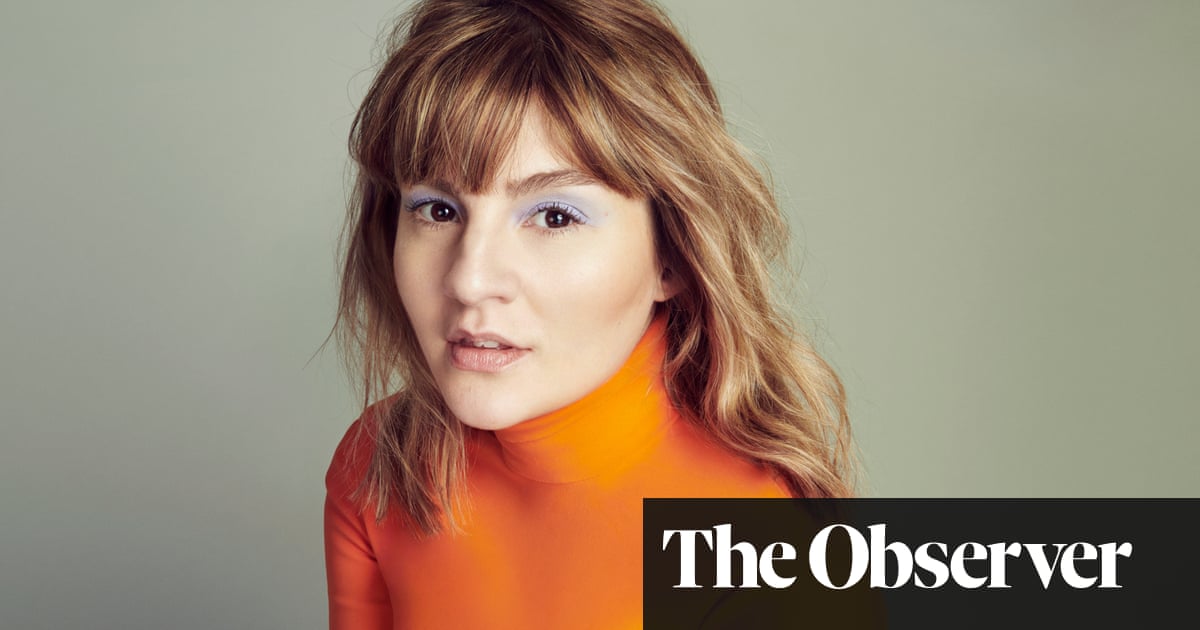‘These stories change how people think’: actor Ruth Madeley on disability, activism and sex scenes - 5 minutes read

Nine months earlier, Don’t Take My Baby, a drama about two disabled parents fighting to keep their newborn child, had been broadcast on BBC Three. It’s been estimated that thousands of babies are removed from disabled couples annually in the UK; Madeley played one such mother fighting to keep her daughter. There’d been talk on set about the production being something special and, when it first aired, it received an impressive reception. Still, when Madeley saw that notification from Bafta, she was gobsmacked. It was her first leading TV role.
Years might have passed, but Madeley still gets a thrill reliving that moment. When she retells the story, sitting in the glam room behind an east London studio, the 34-year-old actor breaks out into an ear-to-ear grin. Madeley was born with spina bifida and uses a wheelchair. When she began acting, she wanted to tell untold stories – to be successful, disabled and visible. To her, the nomination was confirmation she’d been seen. “Doing this has never just been about acting for me, and it never will be,” she says. “I know that with every role I do, there’ll be disabled teenagers at home watching TV. I’d never seen anyone like me, but maybe these ones could.”
It’s why Madeley has no qualms, she explains, with being labelled a “disabled actor”, or us spending time on the topic. She wants these conversations both to be had and heard. “It’s why I feel in such a privileged and powerful position to be in the industry I’m in,” she says, with more than a hint of determination. “If you put disability at the forefront in the media and popular culture, you can change preconceptions of what disability is. That it’s not a death sentence.” For Madeley, it’s more than just being present: “It means telling stories that change how people think.”
“I thought if I was lucky it could be a side hustle,” she says. This was no everything-clicks-into-place revelatory moment. “I saw it as a way to keep building contacts in the industry and while I don’t want to say that I didn’t think it was possible – I try to be one of those insufferable ‘you can do anything’ types – there really was nobody who looked like me making work on screen.”
The day after the ceremony, however, Madeley was back in the Whizz Kids office, hitting the phones to fundraise. “I just assumed it would all be over after that,” she says, “honestly I still think that now. I never imagined there’d be longevity.” It wasn’t just that having a regular paycheque was comforting. “I was also scared there wouldn’t be enough roles,” she says. “Disability did play into that. Still thinking I’ll only get called when they need a disabled actress. The industry has underestimated disabled people for so long that it’s no wonder that’s how I felt.”
For the next three years, Madeley only moonlighted as an actor. When parts came along, she’d use annual leave or make up the hours at nights or weekends. “It was only after I took a six-month unpaid sabbatical to film Russell T Davies’s Years and Years,” Madeley says, “that something shifted.” On her first day back – having already been offered her next gig – Madeley had a word with her boss. “Would you mind,” she asked, earnestly, “if I slightly extended my sabbatical?” It would only be, she assured her manager, two months tops. “I remember my boss said to me: ‘Ruth, I think you’re an actress now.’ That’s when it hit me. Maybe I am. Never had I been struck by so much fear.”
While making Don’t Take My Baby, the day came where Madeley would have to shoot a shower scene. “They came in with my costume: two nipple covers and a pair of pants,” she says. In retrospect it’s all rather funny. “But back then I was totally petrified.” She locked herself in the bathroom and phoned her sister, desperate to find an out. “She talked me down,” Madeley says, still grateful, “telling me: ‘You are doing this for 15-year-old you, and all the 15-year-old yous out there now. Who never see their bodies, their scars.” Once they’d wrapped for the day? “It was the best feeling in the world.”
Because, already, there’s plenty in the pipeline, both her own projects and other acting jobs. She’d love to tell me about them, she assures me, beaming, but sadly can’t. And in the long term? “Hollywood, please,” Madeley says, not skipping a beat, unashamedly ambitious. “Disability representation in Hollywood is… really? I’ll change that, why not? It’s what I’m aiming for. Because it filters down.” She’s already conquering British telly; you can’t help but be convinced she’ll get to Tinseltown, too. Because while in this film Madeley might only be playing an activist, the reality is she’s also a change-maker. Barbara locked herself to buses; Madeley makes work that shifts the dial. There’s no reason why both can’t lead to the same result.
Source: The Guardian
Powered by NewsAPI.org